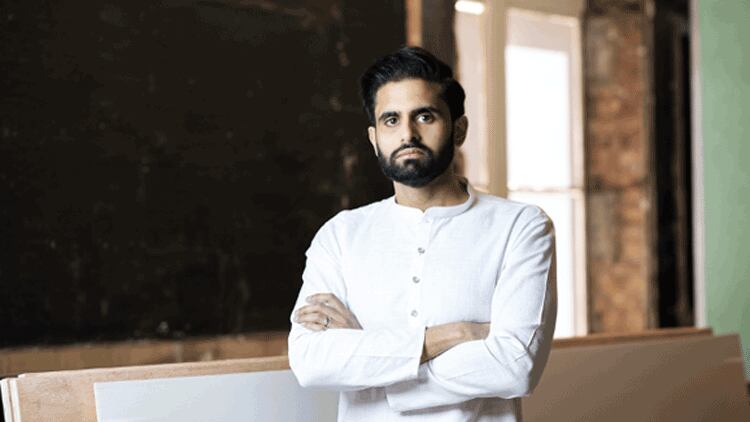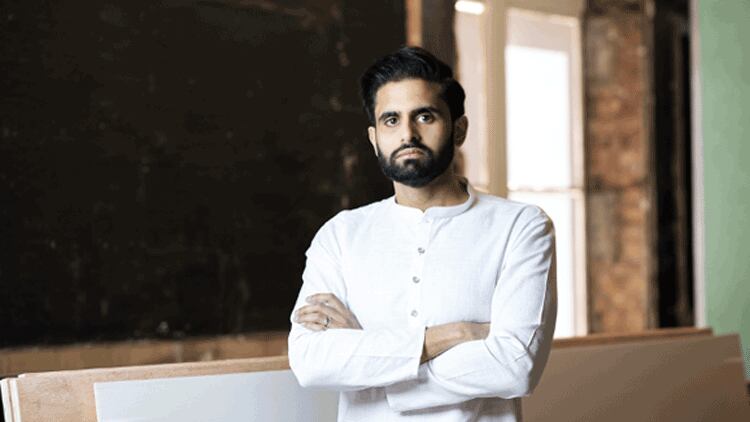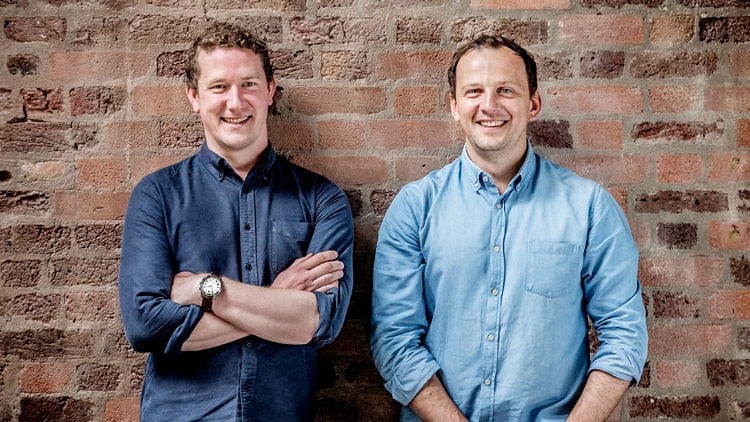There's no shortage of top-end Indian restaurants in Mayfair. What will set Bibi apart?
Indian fine dining restaurants can be quite samey, there’s a lot of crossover on menus. There’s a formula that works and most stick to it. I say that as someone that loves restaurants like Gymkhana. If you want a butter chicken and a garlic naan there is no better place in London, and I’m not just saying that because JKS Restaurants (the restaurant's owners) are backing me. But there’s room for something more progressive. There’s 4,500 years of Indian food culture and history to explore. The atmosphere at Bibi will also be very different to other Mayfair Indians – we’re going to play old school hip-hop.
What exactly will Bibi offer?
Bibi translates in Urdu as ‘lady of the house’ and is used as a term of endearment for grandmothers. The restaurant will be inspired by my own grandmother. We want to tell stories about Indian food and explore everything from street food to the royal cuisines of India. My family is Indian but I wasn’t born there so I can be magpie-like and pick up all the shiny bits. The food will be dynamic and progressive but all the flavours will be recognisably Indian to someone like my grandmother.
Tell us about your background…
I first started working in kitchens when I was at college. I knocked on the door at Benares (a high-end Indian in Mayfair) one day and asked if I could come and watch and maybe do some prep. This led to a commis chef job. At this point I didn’t want to be a chef, I was just interested in food. I continued working in restaurants – including a stint at Locanda Locatelli - throughout my studies (Sharma studied physics at Oxford University and went on to do a masters and a PhD). Towards the end of my PhD I realised I wanted a career in kitchens, which was admittedly quite late in the day.
Where did you go?
I spent a year at Mugaritz (a highly-creative Spanish three-star) as a development chef. They wanted a scientist that was also a chef. From a development perspective it’s one of the most interesting restaurants in the world, although I don’t agree with its mantra that dishes don’t need to be delicious, they just need to be interesting. But I do applaud the team’s commitment to creativity. I came back to the UK and became director of R&D for Simon Rogan’s restaurants, which led to similar roles at other places including The Ledbury and Moor Hall. After that a did consultancy work for much bigger brands including Nando’s.
So when did you start working with the Sethis?
I'd met Karam (Sethi, a co-founder of JKS Restaurants) a few times before but I started having discussions with him in 2017. He told me to stop being a you-know-what and open my own place. We soon started talking about concepts, one of which was Bibi. I’ve spent the last few years helping develop restaurants for JKS, including Brigadiers. It’s been useful. My family is from India so I was brought up with the cuisine but I needed to re-educate my palate.
Will there be a tasting menu at Bibi?
I would not rule it out in the future but we will open offering a la carte only. Serving a succession of eight or so impactful Indian dishes is hard because the palate gets tired. And besides, I’m not sure how many people really want to sit at a table for two or three hours these days. If people want to come in and have a few bits and then leave that's fine. I don’t want people to feel pressured into having a lengthy gastronomic experience. The restaurant is not about me, it's about the guest.
What will Bibi’s price point be?
We're going to be working with expensive ingredients and some dishes will reflect that. But we’re anticipating an average food spend of between £45 and £50 with small plates starting at about £6. Bibi will also offer one of the most interesting and accessibly-priced wine lists in the area. Seamus Williams-Sharkey (the former The Ledbury sommelier that is now group wine buyer at JKS Restaurants) has created a list that starts at £32 a bottle or £6.50 a glass. There are very few big names, we’ve gone for unusual wines that offer great bang for buck.
Old school hip-hop aside, what sort of atmosphere are you going for?
It will have a much more relaxed and contemporary atmosphere than other top-end Indian restaurants. While I accept that my background is fine dining, I’m nervous about that term. I want Bibi to be somewhere you’d pop into for a quick bite on a Monday lunchtime and then come back for dinner later that week. The restaurant will have the conviviality and warmth of a grandma’s table.
Some of London’s more progressively-run Indian restaurants have had a tough time…
I think some high-end Indian restaurants have been guilty of over deconstructing and worrying too much about how things look on the plate. A lot of places have stripped back too much and lost flavour as a result. But I believe there’s a way to refine without losing the essence of a dish. A guess we'll see if I'm right next month.
Do you have the same deal with JKS as the likes of Kitchen Table and Sabor?
Yes despite it being an Indian restaurant it’s the same setup. But while it is a partner site rather than one of JKS Restaurants’ own, I’d be very foolish not to lean on Karam for advice on Indian cuisine. He’s a true food obsessive and has incredible knowledge.





